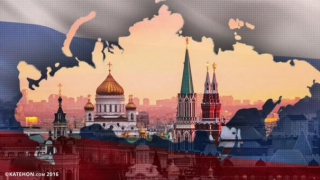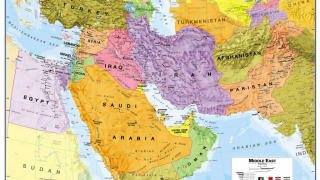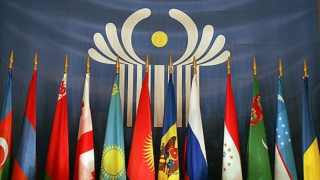Iran elections: analysis, Russian and US view on Tehran
Iran is in many ways a unique country. This state was one of the first in modern history to rebel against the dictate of the West. As a result of the 1979 revolution, the pro-Western Shah was forced to emigrate, and a new administration came to power, headed by Ayatollah Khomeini. Instead of integrating into the global world as a raw material supplier and destroying national identity, the Iranian people took a course to preserve their own religious tradition and unique development path. Despite tough sanctions from countries controlled by global capital, Iran managed to create a solid state with a strong army and independent economy, which allowed the Islamic Republic to become a truly sovereign state. Even the central bank of Iran is not under the control of the IMF, which can not be said, for example, even about Russia. Below are brief descriptions of each of candidates running for presidency on 19th of May 2017.
Who will win the race?
Mostafa Mir-Salim occupied the posts of the head of the Ministry of Internal Affairs and the Ministry of Culture and Islamic Orientation at various times, he is also a member of Expediency Discernment Council, an advisory body helping the Iranian leader. Despite the fact that in he received higher education in France, Mir-Salim is known for his consistent conservative pro-Islamic stance, however this candidate can hardly be called the favorite of the race.
Mostafa Hashemitaba is considered a reformist in the highest political circles of Iran. He served as minister of heavy industry and vice president of the country. He is the founder of a number of the most pro-Western and modernist political parties in Iran, advocating free market relations in a compartment with the promotion of Western stereotypes in the issues of culture and political life of the country. Mostafa Hashemitaba actually ignores foreign policy issues, relying on this issue on the decisions of the supreme ruler - Rahbar and the Guard Corps of the Islamic Revolution. He advocates the preservation of the ecology of Iran and the development of agriculture. Mostafa Hashemitaba regularly participates in the elections, gaining about 1-2 percent of the support.
Hasan Rouhani is considered the favorite by the majority of Western media. Journalists and experts from the US and Europe emphasize a moderate and compromising position of the current president of Iran. In 2013 he was elected for the first term, at this time the US administration was headed by Barack Obama. A number of large analysts say that moderate and relatively delicate Roukhani replaced hard and inflexible Mahmoud Ahmadinejad so that Tehran could agree with the Obama team. The result of this decision was the agreement on the Iranian nuclear program, achieved with the significant participation of Russia as an intermediary. The nuclear deal was supposed to unfreeze Iranian assets in foreign banks and stimulate the Iranian economy, but Rouhani failed to realize this economic plan. The West is ready to negotiate with Rouhani, because during his presidential term, permanent contacts were established between the White House and Tehran. Unlike tough conservatives, Rouhani does not use anti-Semitic rhetoric, and this appeals to the White House, which now has passed under the complete control of the pro-Israel lobby.
The greatest interest, unconditionally, is caused by another favorite of the race - Ebrahim Raisi. Unlike the already well-known Roukhani, he is a kind of "dark horse". For a long time he held high positions in the justice system, including the Iranian Prosecutor General. In the post-revolutionary years, Raisi led the fight against terrorist groups of Communists, ensuring order and stability in the rear during the Iran-Iraq war. However, what is more important for the Islamic Republic is that Raisi is a Seid, a descendant of the Prophet Muhammad and Imam Ali. Moreover, Raisi is the son-in-law of Ayatollah Ahmad Alamolhod, who is the main imam of the Imam Reza Mausoleum, one of the main shrines of the Shiite world. In many respects, that is why he is the most conservative candidate, advocating for the traditional valuesof the people and the protection of faith.
External factor
If we talk about the main geopolitical players, the interests of Russia in the Islamic Republic grow every year. The most important factor of bilateral relations, of course, is the war in Syria. Moscow and Tehran have similar positions on most issues and are in favor of preserving the territorial integrity and sovereignty of the Syrian Arab Republic. Moscow's role in preparing an agreement on the Iranian nuclear program was extremely important: without Russia's participation, the deal simply would not have taken place. Trade between countries is also growing. During the first months of 2017, it grew by 54%. Moscow is interested in having a strong leader in tehran, which will conduct a sovereign foreign policy. Hasan Rouhani can make concessions in relations with the West, but Ebrahim Raisi will not do this. This means that most likely he will try to get even closer to Moscow, which will lead to further strengthening of Russian positions.
The US, in turn, is betting on Rouhani, since the victory of a more liberal candidate in the Iranian political system is simply impossible. The moderate and compromising figure of the current president is more comfortable for the White House than the consecutive conservative Raisi. During the first term of Rouhani, stable contacts were established between Washington and Tehran. However, the main contradiction in the policy of the new Trump administration is that at the moment the White House is under the control of the Israeli lobby. And Israel is the main geopolitical opponent of Iran in the region. In other words, even if Trump wants to establish relations with Tehran, people around him will not let this happen. This is the reason for the contradictory nature of Washington's policy in this area.














